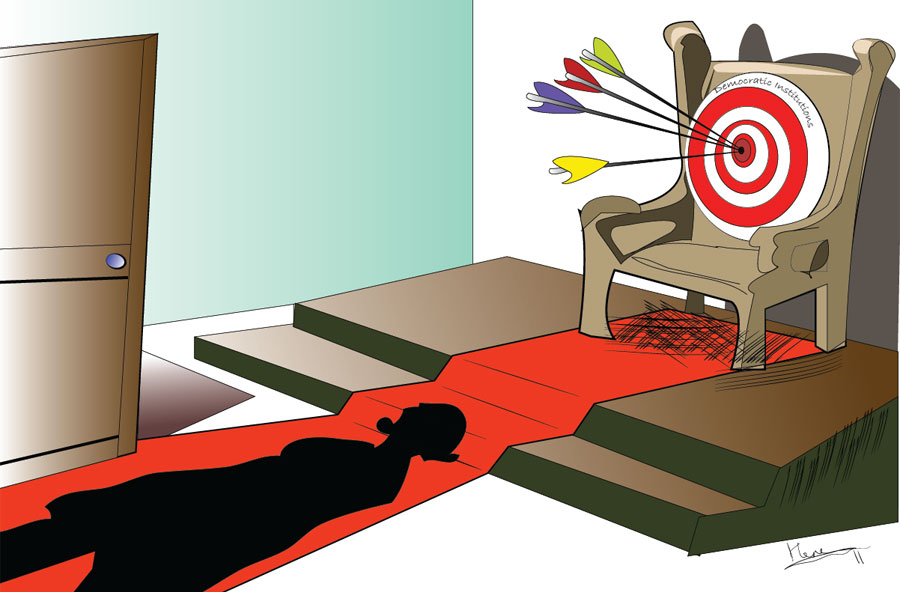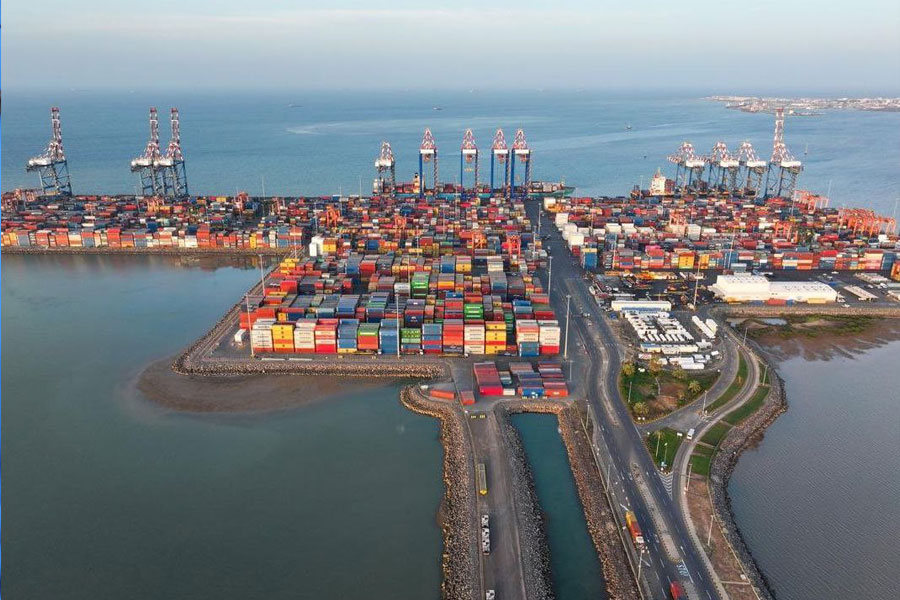
Oct 15 , 2022
By Bjorn Lomborg
We are incessantly told about the latest heatwave, flood, wildfire or storm. Yet, the data shows that over the past century, people have become much safer from all these weather disasters, writes Bjorn Lomborg, President of the Copenhagen Consensus and Visiting Fellow at Stanford University's Hoover Institution.
It is easy to believe that life on Earth is getting worse. The media constantly highlights one catastrophe after another, making terrifying predictions. With a torrent of doom and gloom about climate change and the environment, it is understandable why many people, especially the young, believe that the world is about to end. The fact is that while problems remain, the world is getting better. And we rarely hear about it.
We are incessantly told about the latest heatwave, flood, wildfire or storm. Yet, the data shows that people have become much safer over the past century from all these weather disasters. In the 1920s, weather events resulted in the death of around half a million people, whereas in the last decade, the death toll averaged about 18,000. Currently, it is tracking below that.
Why? Because when people get richer, they get more resilient.
Weather-fixated television news would make us all think disasters are getting worse, but they are not. In 1900, around 4.5pc of the land area of the world would burn every year. This has declined to about 3.2pc over the last century. In the previous two decades, satellites have shown a further decline to just 2.5pc burn in 2021. This happened because more affluent societies prevent fires.
Despite what you may have heard about record-breaking costs from weather disasters, mainly because wealthier populations build expensive houses along coastlines, damage costs are declining, not increasing, as a percent of GDP.
But weather disasters are not the only thing getting better, despite dire predictions. A decade ago, environmentalists loudly declared that Australia’s magnificent Great Barrier Reef was nearly dead, killed by bleaching caused by climate change. The UK Guardian even published an obituary. This year, scientists have revealed that two-thirds of it shows the highest coral cover since records began in 1985. The good news report got a fraction of the attention.
Not long ago, environmentalists constantly used pictures of polar bears to highlight the dangers of climate change. Polar bears are featured in Al Gore’s terrifying movie An Inconvenient Truth. But the reality is that polar bear numbers have been increasing, from around five and 10,000 polar bears in the 1960s to about 26,000 today. We did not hear this news. Instead, campaigners quietly stopped using polar bears in their activism.
There is so much bad news that we seldom stop to consider that life is getting much better on the most critical fronts. Human life expectancy has doubled over the past century, from 36 years in the 1920s to more than 72 years today. A hundred years ago, three-quarters of the world’s population lived in extreme poverty. Today, it is less than one-tenth. The deadliest environmental problem, air pollution, was four times more likely to kill primarily people in poverty, cooking and heating with dung and wood, in the 1920s than today.
Despite COVID-related setbacks, humanity has become better and better off. Yet doom-mongers will keep telling us the end is near. It is great for their fundraising, but the costs to society are sky-high as we make dismal, expensive policy choices, and our kids are witless.
We also end up ignoring much bigger problems like the attention devoted to heat waves. In the United States and many other parts of the world, heat deaths are declining because access to air conditioning helps much more than rising temperatures hurt. However, almost everywhere, the cold quietly kills many more. In the United States, about 20,000 people die from heat, but 170,000 die from cold, something we rarely focus on.
Our continued focus on climate change exacerbates this trend because politicians have introduced green laws that make energy more expensive, making fewer people able to afford keeping warm. We do not prioritise our focus.
Global warming prompts celebrities and politicians to fly around the world in private jets, lecturing the rest of us, as problems like hunger, infectious diseases and lack of primary schools are overlooked.
When did politicians and movie stars ever meet for an important cause like deworming children?
We need a balance in our news, but that does not mean ignoring global warming, a real problem caused by humanity. To know what to expect from a warming planet, we can look at the damage estimates from the economic models used by the Biden and Obama administrations, revealing that the entire global cost of climate change will be equivalent to less than a four pc hit to global GDP by the end of the century.
Humanity is getting prosperous by the day. The United Nations estimates that without global warming, the average person in the 22nd century would be 450pc better off than today, meaning that people will only be 434pc richer instead. That is not a disaster.
Climate change fear is causing major anxiety. We might be hearing nothing but bad news, but it does not mean that we hear the whole story.
PUBLISHED ON
Oct 15,2022 [ VOL
23 , NO
1172]


Radar | Jul 02,2022

Editorial | Dec 05,2018

Films Review | Jan 07,2022

Viewpoints | Sep 08,2024

Radar | Feb 27,2021

Viewpoints | Jul 03,2021

Commentaries | Jun 21,2025

Viewpoints | Feb 01,2019

Radar | May 08,2021

Fortune News | Jun 11,2024

My Opinion | 132151 Views | Aug 14,2021

My Opinion | 128561 Views | Aug 21,2021

My Opinion | 126482 Views | Sep 10,2021

My Opinion | 124091 Views | Aug 07,2021





Dec 22 , 2024 . By TIZITA SHEWAFERAW
Charged with transforming colossal state-owned enterprises into modern and competitiv...

Aug 18 , 2024 . By AKSAH ITALO
Although predictable Yonas Zerihun's job in the ride-hailing service is not immune to...

Jul 28 , 2024 . By TIZITA SHEWAFERAW
Unhabitual, perhaps too many, Samuel Gebreyohannes, 38, used to occasionally enjoy a couple of beers at breakfast. However, he recently swit...

Jul 13 , 2024 . By AKSAH ITALO
Investors who rely on tractors, trucks, and field vehicles for commuting, transporting commodities, and f...

Jul 12 , 2025
Political leaders and their policy advisors often promise great leaps forward, yet th...

Jul 5 , 2025
Six years ago, Ethiopia was the darling of international liberal commentators. A year...

Jun 28 , 2025
Meseret Damtie, the assertive auditor general, has never been shy about naming names...

Jun 21 , 2025
A well-worn adage says, “Budget is not destiny, but it is direction.” Examining t...

Jul 13 , 2025 . By YITBAREK GETACHEW
The Addis Abeba City Revenue Bureau has introduced a new directive set to reshape how...

Jul 13 , 2025 . By BEZAWIT HULUAGER
Addis Abeba has approved a record 350 billion Br budget for the 2025/26 fiscal year,...

Jul 13 , 2025 . By RUTH BERHANU
The Addis Abeba Revenue Bureau has scrapped a value-added tax (VAT) on unprocessed ve...

Jul 13 , 2025 . By NAHOM AYELE
Federal lawmakers have finally brought closure to a protracted and contentious tax de...